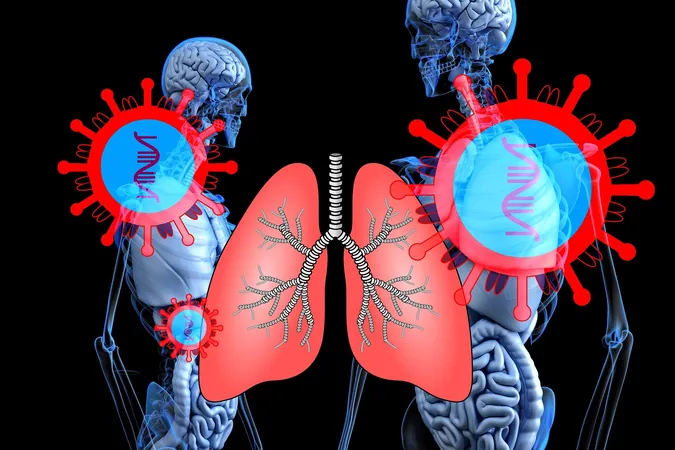
Breakthrough Immunotherapy Offers Hope for Lung Cancer Patients: Promising Results Unveiled!
2025-09-09
Author: Daniel
Revolutionary Treatment Shows Long-term Survival in Lung Cancer Patients
In a groundbreaking study revealed at the 2025 World Conference on Lung Cancer, researchers have uncovered remarkable long-term survival rates among advanced non-small cell lung cancer (NSCLC) patients through a novel viral immunotherapy, CAN-2409. This innovative approach targets individuals who have struggled to respond to traditional immune checkpoint inhibitors (ICI) and offers a newfound glimmer of hope.
The Study Design: A Closer Look
The Phase IIa clinical trial, sponsored by Candel Therapeutics, evaluated the effects of two intratumoral injections of CAN-2409 combined with an oral prodrug (valacyclovir) on patients with unresectable stage III/IV NSCLC. Participants were grouped based on their disease status at the outset: stable disease despite ICI treatment or progressive disease.
Survival Rates that Inspire Hope
From the 76 patients enrolled, 46 were included in the analysis at a median follow-up of 32.4 months. Remarkably, the median overall survival (OS) reached 24.5 months, with an impressive 37% of patients remaining alive over two years post-treatment. Those with progressive disease at baseline fared slightly lower, with a median OS of 21.5 months.
Key Findings: Non-Squamous Patients Thrive More
A surprising revelation emerged: patients with non-squamous histology experienced longer survival rates—25.4 months—compared to just 13.3 months for those with squamous histology. This difference was linked to a notable increase in cytotoxic effector T cells, suggesting enhanced immune responses following treatment.
Impressive Systemic Impact
The trial showcased a substantial systemic immune activation, with 69% of patients exhibiting abscopal responses, indicating a potent anti-tumor effect triggered by localized treatment—a promising sign of CAN-2409's potential.
A Call for Further Research
Dr. Charu Aggarwal from the Abramson Cancer Center at the University of Pennsylvania emphasized, "These findings confirm the lasting survival benefits of CAN-2409, particularly for patients with scarce treatment options following ICI therapy. We strongly advocate for advancing CAN-2409 into larger randomized controlled trials, focusing on the non-squamous population."
Safety Profile Remains Positive
Throughout the study's extended follow-up, Dr. Aggarwal highlighted that CAN-2409 maintained a favorable safety and tolerability profile, making it an even more attractive option for lung cancer patients.
With these compelling results, the potential impact of CAN-2409 on the future of lung cancer treatment is undeniable. The fight against NSCLC is far from over, but with innovations like this, there’s newfound hope on the horizon.

 Brasil (PT)
Brasil (PT)
 Canada (EN)
Canada (EN)
 Chile (ES)
Chile (ES)
 Česko (CS)
Česko (CS)
 대한민국 (KO)
대한민국 (KO)
 España (ES)
España (ES)
 France (FR)
France (FR)
 Hong Kong (EN)
Hong Kong (EN)
 Italia (IT)
Italia (IT)
 日本 (JA)
日本 (JA)
 Magyarország (HU)
Magyarország (HU)
 Norge (NO)
Norge (NO)
 Polska (PL)
Polska (PL)
 Schweiz (DE)
Schweiz (DE)
 Singapore (EN)
Singapore (EN)
 Sverige (SV)
Sverige (SV)
 Suomi (FI)
Suomi (FI)
 Türkiye (TR)
Türkiye (TR)
 الإمارات العربية المتحدة (AR)
الإمارات العربية المتحدة (AR)